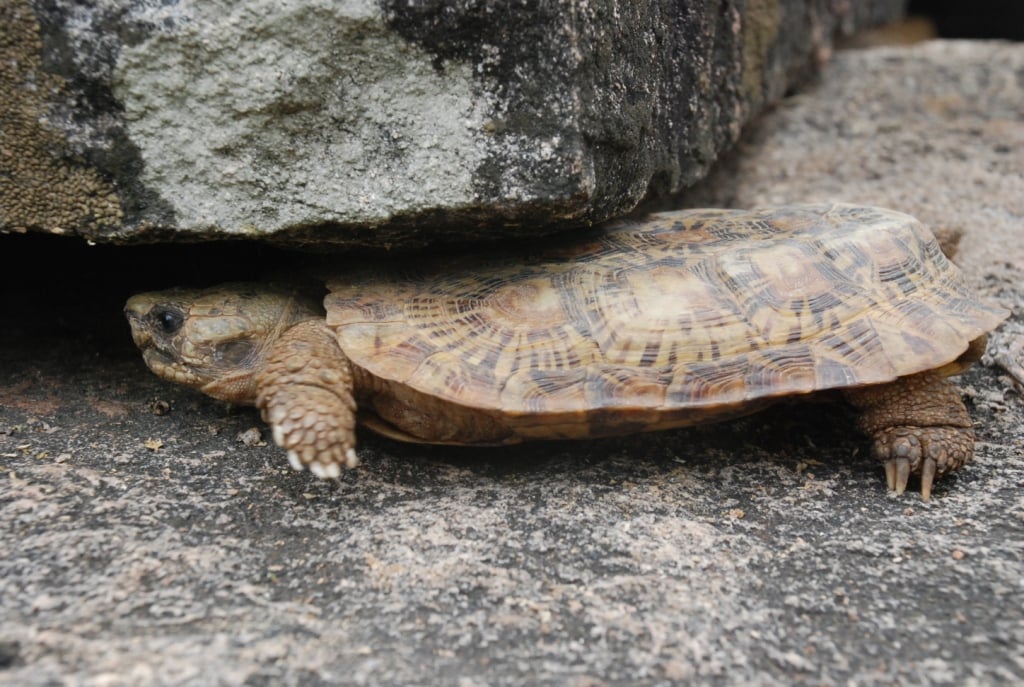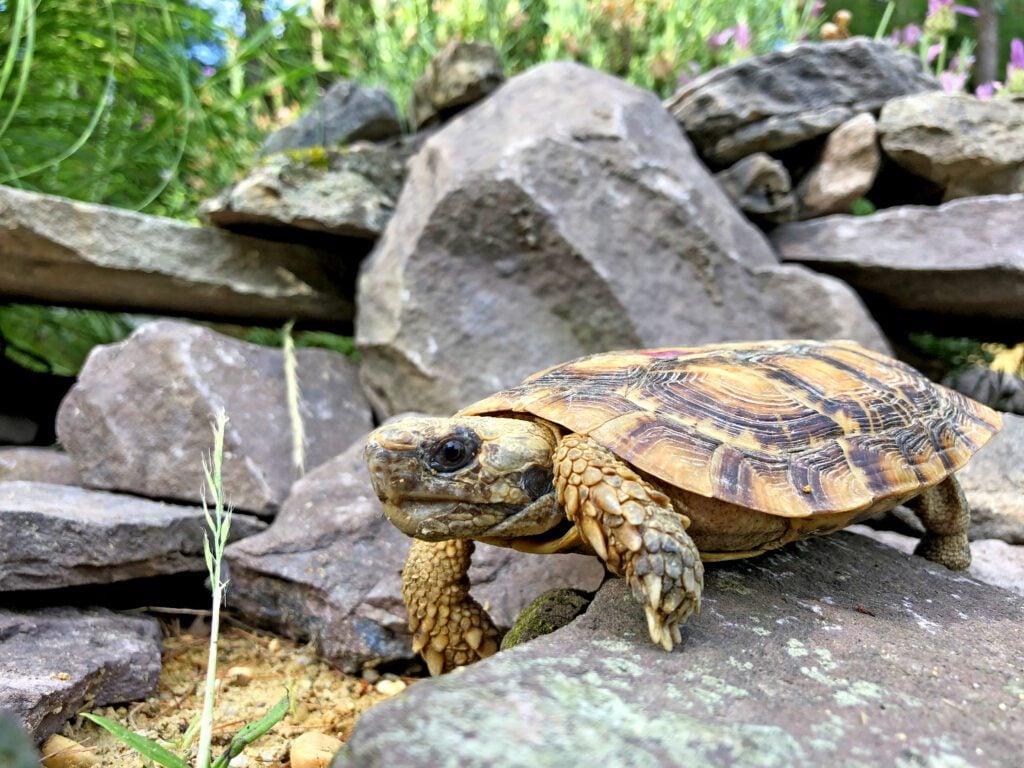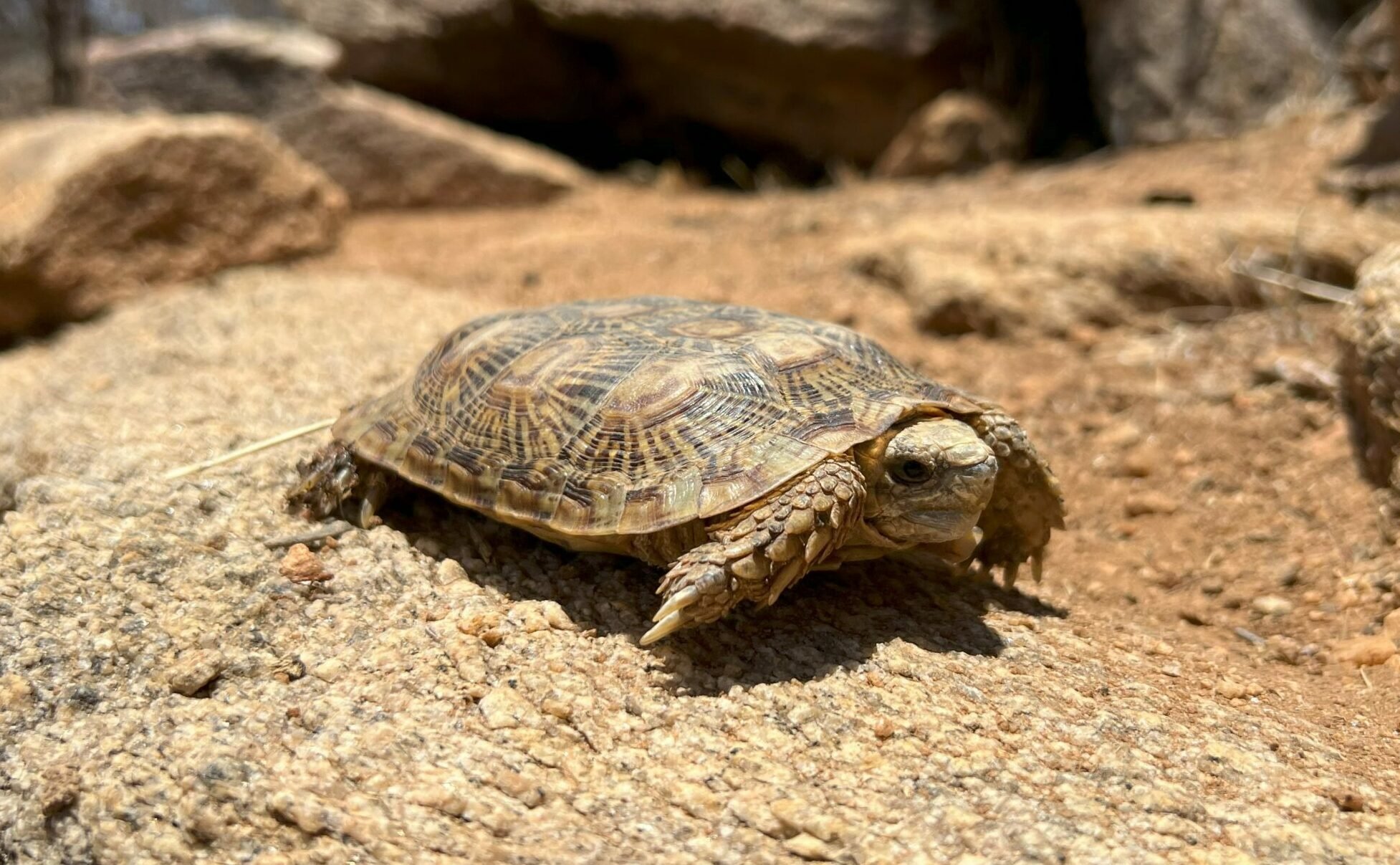This fantastic flapjack tortoise always draws the spotlight thanks to its unique, flat shape. Its flat body allows this tortoise to avoid predators by squeezing inside deep cracks and crevices of boulders for safety. Once inside the cracks, they can fill their lungs with air, causing their shells to expand, allowing them to fit more snugly between these rocks. This makes it extremely difficult for predators to dislodge them.
Unfortunately, its fascinating qualities make this tortoise desirable for poaching for the pet trade, resulting in the drastic decrease in its population. It now only exists in scattered populations in its native countries of Kenya, Tanzania, and Zambia, where it relies on unique rock outcroppings for its habitat.

To protect this species, Turtle Survival Alliance partners with conservation entities in Kenya — the Lewa Wildlife Conservancy, the National Museums of Kenya, and the Kenyan Wildlife Service, to explore previously unsurveyed but promising areas of Kenya for undocumented populations of Pancake Tortoises.
In the fall of 2023, we expanded our surveys to now include seven community conservancies, and are now embarking on developing a long-term survival plan focused on community protection measures that will include population monitoring, augmentation, and learning more about the ecology of this species.
Turtle Survival Alliance also manages captive populations of Pancake Tortoises in the care of partnering facilities and individuals, including our supporter and partner Garden State Tortoise.

Thank you to our partners on this project:
Lewa Wildlife Conservancy Canada, Il N’gwesi Community Conservancy, National Museums of Kenya, Kenyan Wildlife Service, Leparua Community Conservancy, Nasuulu Community Conservancy, West Gate Community Conservancy, Kalama Community Conservancy, Lekurki Community Conservancy.
- Pictured: Pancake Tortoise (Malacochersus tornieri)
- Countries of Origin: Kenya, Tanzania, Zambia
- Habitat: Isolated rocky hill and outcropping microhabitats in semi-arid and arid thornbush savannas
- Wild Population: Decreasing; estimated population reduction greater than 80%; populations severely fragmented; majority of populations occur outside protected areas
- IUCN Red List Status: Critically Endangered
- Threats: Illegal collection for the pet trade; habitat destruction and conversion for farming; laundering wild-caught tortoises as captive bred
Header image by Clinton Doak.
